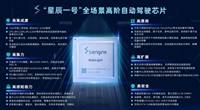| 型号 | 品牌 | 获取价格 | 描述 | 数据表 |
| HCPL-7710-XXXE | AGILENT |
获取价格 |
40 ns Propagation Delay, CMOS Optocoupler |

|
| HCPL-7720 | AVAGO |
获取价格 |
40 ns Propagation Delay, CMOS Optocoupler High speed: 25 MBd |

|
| HCPL-7720 | AGILENT |
获取价格 |
40 ns Propagation Delay CMOS Optocoupler |

|
| HCPL-7720 | BOARDCOM |
获取价格 |
Optocoupler Option 020 for 5000 V rms/1 Minute Requirement |

|
| HCPL-7720#060 | ETC |
获取价格 |
FET-OUTPUT OPTOCOUPLER |

|
| HCPL-7720#300 | ETC |
获取价格 |
FET-OUTPUT OPTOCOUPLER |

|
| HCPL7720#360 | ETC |
获取价格 |
FET-OUTPUT OPTOCOUPLER |

|
| HCPL-7720#500 | AGILENT |
获取价格 |
1 CHANNEL LOGIC OUTPUT OPTOCOUPLER, 25 Mbps, 0.300 INCH, SURFACE MOUNT, DIP-8 |

|
| HCPL-7720#500 | AVAGO |
获取价格 |
1 CHANNEL LOGIC OUTPUT OPTOCOUPLER, 25Mbps, 0.300 INCH, SURFACE MOUNT, DIP-8 |

|
| HCPL7720#560 | ETC |
获取价格 |
FET-OUTPUT OPTOCOUPLER |

|
 英伟达新AI芯片Rubin或提前半年亮相
英伟达新AI芯片Rubin或提前半年亮相

 苹果iPhone 17将全系采用三星/LG显示LTPO OLED面板
苹果iPhone 17将全系采用三星/LG显示LTPO OLED面板

 三星深化印度制造布局,供应链本地化进程加速
三星深化印度制造布局,供应链本地化进程加速

 芯擎科技“星辰一号”自动驾驶芯片点亮成功,2025年量产在即
芯擎科技“星辰一号”自动驾驶芯片点亮成功,2025年量产在即
